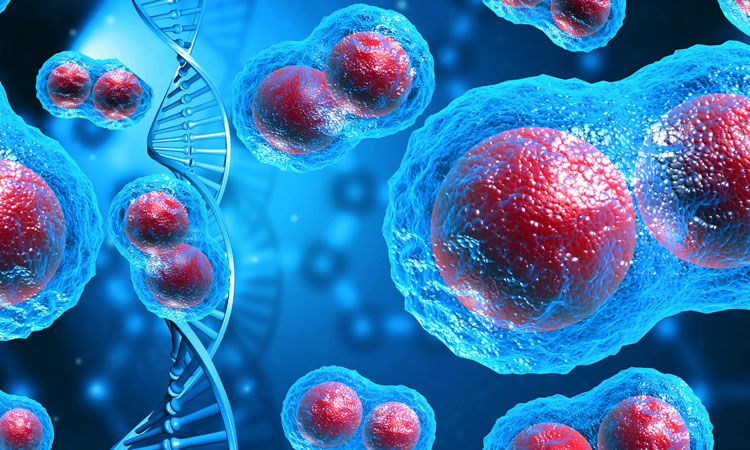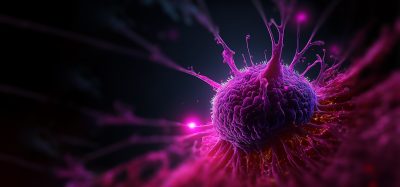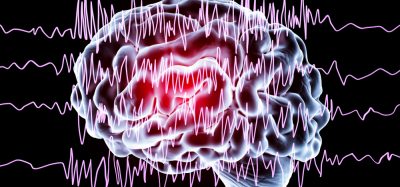Not all neoantigens are created equal
Posted: 28 December 2023 | Dr Sergio Quezada (Achilles Therapeutics) | No comments yet
Founder and CSO of Achilles Therapeutics Dr Sergio Quezada reveals how the landmark TRACERx study has gleaned key insights that could make the difference between success and failure in immunotherapy treatment.


During the process of transformation from a normal cell into a cancer cell, a cell acquires a series of changes, or mutations, in its DNA. In most cancers, the tumour evolves by acquiring mutations that confer growth advantages or resistance to therapies. But DNA mutations can also result in changes to the proteins that are displayed on the surface of the cancer cell. These newly formed mutated proteins are called neoantigens and they are only present on tumour cells and are not found in normal, healthy cells. These neoantigens are identified by T cells of the immune system as foreign proteins and thus trigger an immune response.
Findings from a leading-edge study called TRACERx have demonstrated how mutations that occur very early in the process of cancer genesis remain present in all cells of a growing tumour. These mutations are called clonal mutations or clonal neoantigens. Recent advances in bioinformatics show clonal neoantigens are the best targets for immunotherapy, as I will elucidate below.
Our immune system helps us to fight off infections and cancer. Recognition of bacteria, viruses and fungal invaders as ‘foreign’ makes sense, but how does the immune system recognise cancer cells as a threat?
The answer is neoantigens – the newly formed proteins generated by tumour cells as a result of various tumour-specific alterations. Neoantigens are recognised as non-self and trigger an immune response.
Landmark tumour evolution study
The ongoing landmark tumour evolution study TRACERx is one of the largest studies of its kind in history and the largest longitudinal real-world patient dataset in non-small cell lung cancer (NSCLC). Involving more than 250 investigators based at 19 hospital sites across the UK, the study has analysed genetic signatures in lung tumours, tracking how they have evolved over the past nine years in more than 815 patients.
From TRACERx we know that mutations that occur very early in the process of cancer genesis and tumour evolution remain present in all cells of a growing tumour, including metastases. These are referred to as clonal mutations, and the resulting protein is a clonal neoantigen. These mutations can be visualised in terms of the ‘trunk’ of the cancer’s growing evolutionary ‘tree’. Mutations that arise later in evolution will be present in only a subset of the cancer cells. These are known as subclonal or branch mutations, as they represent the ‘branches’ of the cancer’s evolutionary tree.
Recent advances in bioinformatics show clonal neoantigens are the best targets for immunotherapy
The TRACERx researchers have conducted extensive multi-region sequencing of more than 4,000 biopsy samples and through this have established the importance of multi-region sampling for identifying true clonal neoantigens by manually mapping out the evolution of each patient’s tumour. It is believed that without sequencing the entire protein-coding region of the tumours, 76 percent of subclonal mutations could have appeared to be clonal.
The TRACERx study, which is scheduled for completion in 2025, has yielded over 25 publications and 6,000 citations and counting, continuing to play a significant role in furthering our understanding of tumour evolution and heterogeneity.
Neoantigens can be targeted with immunotherapies. However, if the therapy targets only the subclonal (branch) mutations, this will result in the mere ‘pruning’ of specific branches rather than elimination of the whole cancer. This allows the cancer to evolve and develop resistance to the therapy. To fell the entire tree, it is necessary to target the original clonal neoantigens that are present in every cancer cell.
Immunosurveillance and the importance of CD4 T cells in developing cancer vaccines
The TRACERx data have been used to identify clonal mutations for each patient in the study by comparing a patient’s tumour DNA to their healthy DNA, thereby identifying patient-specific mutations that could be targeted by a range of novel immune therapy modalities.
The higher the number of clonal neoantigens, the greater the chance of immune recognition and successful elimination of all cancer cells. Patients with high numbers of clonal neoantigens show improved disease-free survival.
To fell the entire tree, it is necessary to target the original clonal neoantigens that are present in every cancer cell
Given that no two tumours are the same, every patient’s tumour will carry a unique set of clonal neoantigens. Using powerful bioinformatics technology developed and validated with sequence data from the TRACERx study, researchers are able to identify clonal neoantigens from a patient’s unique tumour profile.
Neoantigen immunogenicity
The importance of clonal neoantigens in facilitating T-cell recognition of tumours and subsequent response to immunotherapy has now been established in multiple indications.
However, given the large numbers of neoantigens present in a patient’s tumour, a significant challenge lies in identifying the select few neoantigen targets that possess the potential to trigger enduring and clinically significant immune responses.
How do we increase our chances of success by identifying the most potent clonal neoantigens for personalised cancer therapies?
Researchers believe supplementing bioinformatics with artificial intelligence trained on real-world data will provide the answer. This enhanced platform can ‘rank’ the potential of a given clonal neoantigen in terms of its immunogenicity enabling researchers to prioritise the top performers.
A new neoantigen immunogenicity ranking tool has recently been developed that was trained and validated using data from over 10,000 screened neoantigens through expansion and characterisation of actual T-cell clones. Through the integration of genomic, transcriptomic and proteomic data, a set of features was defined for training purposes.
The neoRankerTM tool utilises these features to selectively enrich a list of clonal neoantigens for those capable of eliciting CD8+ or CD4+ T-cell responses. The reactivity screen tests up to 200 neoantigens per patient and ranks them according to their reactivity. Those neoantigens most likely to generate a potent T-cell response can be accurately predicted, providing the best target subjects for cancer immunotherapy programmes.
Triplet immuno-oncology drug combinations – the future of treating multiple cancer
One of the therapeutic modalities already implementing this new technology is tumour infiltrating lymphocyte (TIL)-based clinical programmes in advanced non-small cell lung cancer (NSCLC) and melanoma. Researchers believe there is potential for its use in other modalities such as clonal neoantigen cancer vaccines (mRNA vaccines or other vaccine platforms using highly immunogenic clonal neoantigens to improve efficacy) and T-cell receptor (TCR) therapy, wherein T cells could be engineered with receptors that target shared neoantigens.
Through identifying clonality of neoantigens and ranking their immunogenicity, there is potential for significant impact on the development of precision cell therapy and personalised cancer vaccines.
About the author
Dr Sergio Quezada
Chief Scientific Officer, Achilles Therapeutics
Sergio is a scientific founder of Achilles Therapeutics, a Professor of Cancer Immunology and Immunotherapy at University College London Cancer Institute, and a CRUK senior cancer research fellow. He is an internationally recognised leader in the field of cancer immunology, tumour microenvironment, regulatory T cells and immune checkpoint blockade. His research unveiled the critical role of Fc receptors and the tumour microenvironment in the mechanism of action of anti CTLA-4 antibodies, and he is an inventor of several key patents supporting the clinical development of antibodies targeting immune checkpoints. Sergio co-led the development of a first-in-class Treg-depleting anti-human CD25 antibody with TUSK Therapeutics, which was acquired by Roche in 2018 and is currently under clinical evaluation. In 2016 he co-led ground-breaking research supporting the key role of clonal tumour neoantigens in the immune response to cancer; research that underpins the Achilles approach. Sergio holds a PhD from Dartmouth Medical School and from 2004 to 2010 he held a post-doctoral position at Memorial Sloan-Kettering Cancer Center.
Related topics
Cancer research, Disease Research, Drug Targets
Related conditions
Non-small cell lung cancer (NSCLC)
Related organisations
Achilles Therapeutics








